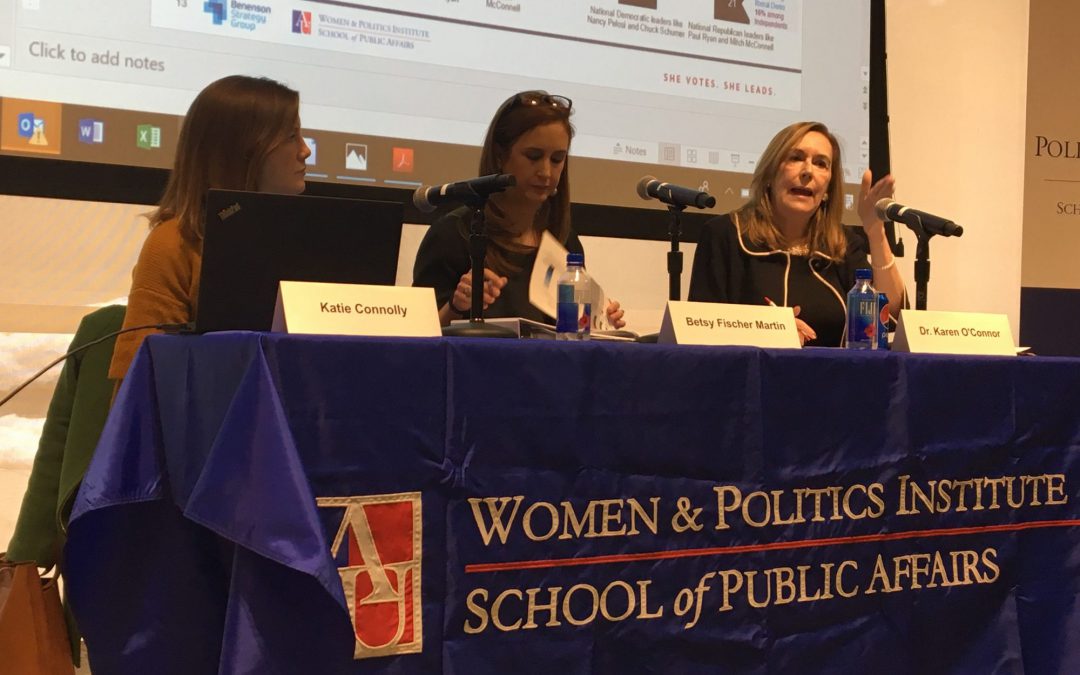WASHINGTON — President Donald Trump is “deeply unpopular with women voters,” but they voted in the mid-terms based on candidates merit rather than to check Trump, a poll released in early December found.
The post-November election poll, sponsored by American University’s Women & Politics Institute and the Benenson Strategy Group, found that women were most concerned about health care and the economy, which ultimately drove their vote.
‘President Trump was a factor in that but certainly not the only factor,” Benenson Strategy Group Senior Vice President Katie Connolly said.
“When people go into the voting booth, it is a holistic process,” she said. Connolly explained women vote for issues they want addressed so women candidates cannot take women voters for granted.
“Women will not vote for women for the sake of it,” Connolly said, noting that 59 percent of women said the idea of electing more women to political office is exciting, but they need to know that the female candidate is the right woman.
She said women candidates should not expect gender loyalty.
“At the end of the day,” the study said, “the party a candidate belongs to will override enthusiasm for the idea of more women in office.”
The survey showed that 62 percent of women said the historic number of women elected to Congress in November makes them hopeful political gridlock can be reduced.
“Women see women leaders as fights and as doers,” Connolly said. The poll showed numerous abilities believed to be more likely found in female politicians than their male counterparts. This included focusing on the future, getting things done, and collaborating.
In addition, “having had a female presidential nominee broke the seal for a lot of people as well,” she said.
The poll found that 85 percent of women surveyed believe successful women open up doors for other women. “When they see that other women’s contributions are valued, their contributions will be valued as well,” Connolly said.
American University political science professor Karen O’Connor pointed out that belief is not always the case in presidential elections. While Hillary Clinton was once the most popular woman in America, her favorability plummeted nearly 35 percent after she announced her bid for the presidency, O’Connor said. “All she did was announce,” she said.
“Women who ask for power lose empathy,” Connolly said. She said there is a similar dynamic for women CEOs, who are often discouraged from assuming top posts because it could hurt their families.
O’Connor also pointed out retaliation against Nancy Pelosi’s speakership. “The way that Democratic voters spoke of Nancy Pelosi was entirely disrespectful,” she said, and called it complete and total discrimination against women.”
Fifty-six per percent of women surveyed believed there were too few women in office before the midterms, but the number varied with political ideology, but only 33 percent of Republican women believed there were too few women in office.


